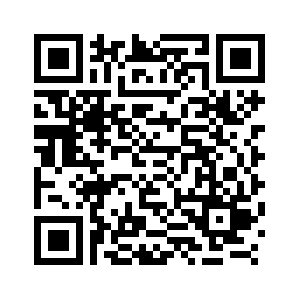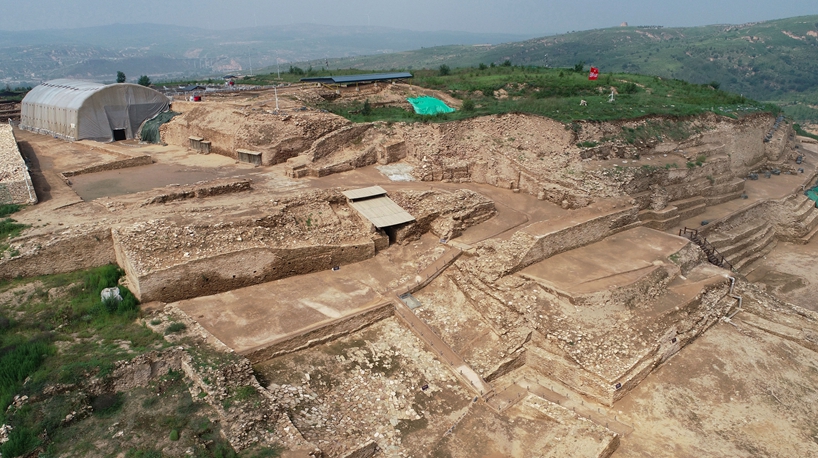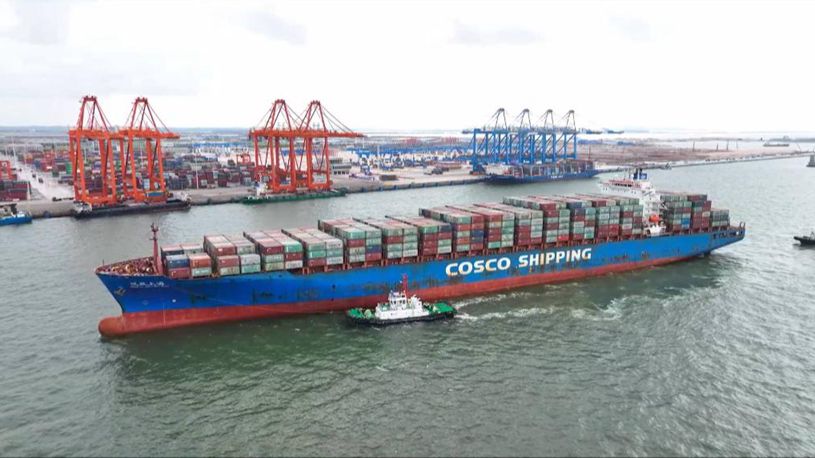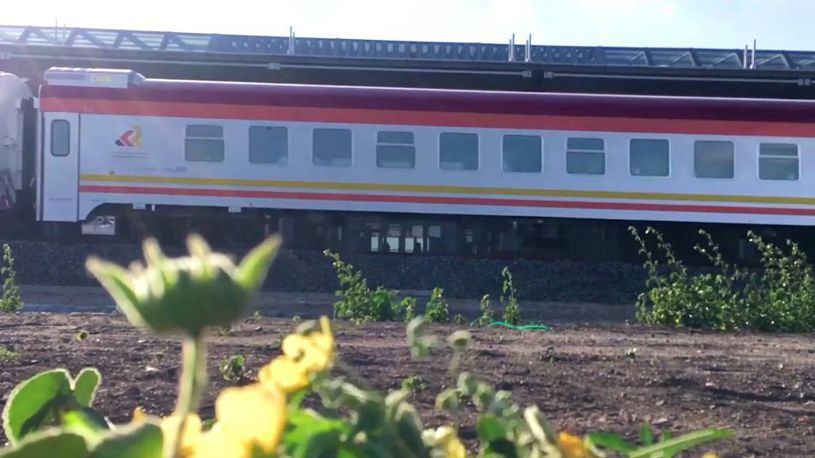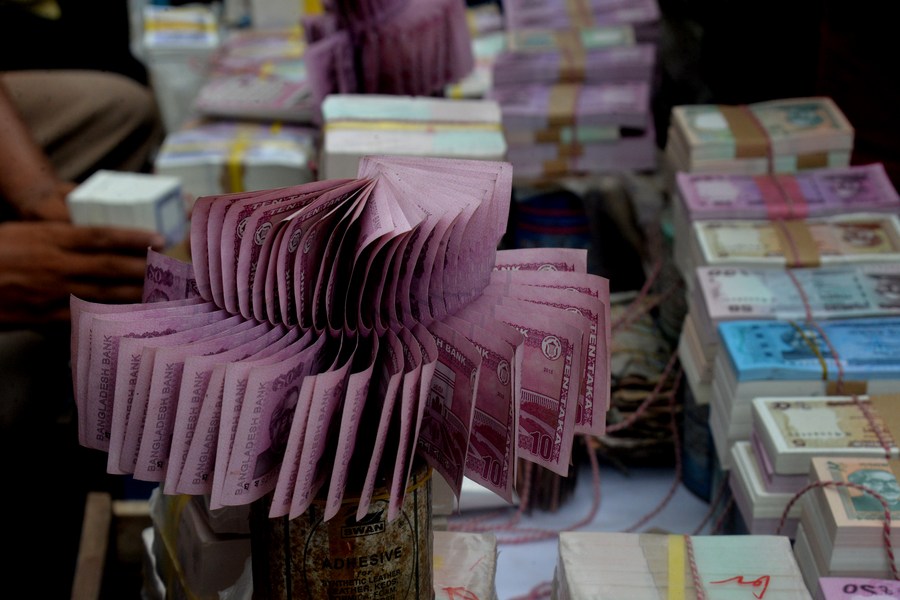
The photo taken on June 23, 2017 shows bundles of currency notes of taka (Bangladeshi currency) at a footpath stall in Dhaka, capital of Bangladesh, on June 23, 2017. (Xinhua/Salim Reza)
Experts have stressed the need for curbing imports, boosting exports and inflow of remittances to minimize trade deficit and provide relief to Bangladesh's forex reserves.
The Bangladeshi government has said it is contemplating taking loans from the International Monetary Fund as precautionary measures.
DHAKA, Aug. 10 (Xinhua) -- The U.S. dollar reached an all-time high against the Bangladeshi taka on Monday, soaring to 115 taka for the first time in the country's kerb market trading history.
On July 26 this year, the greenback reached 112 taka in the country's open market for the first time. Subsequently, the rate hovered around 106 taka at the kerb market as authorities launched raids on money exchanger houses and the Bangladesh Bank (BB) intensified its monitoring.
However, the fresh hike comes amid mounting economic pressure and speculation that the country is in dire need of foreign loan support.
Increasing imports and a widening trade deficit were also cited as the possible reasons for taka depreciation.
A BB official told Xinhua that the import bill in the last fiscal year 2021-22 increased to over 82 billion U.S. dollars, fueling a persistent increase in the country's trade deficit.
"This is continuously increasing the pressure on the taka," said the official who did not like to be named.
Bangladesh's trade deficit ballooned to a record level of over 33 billion U.S. dollars in the fiscal 2021-22 which ended June 30 on the back of increased imports, showed the latest central bank data.
According to the central bank data, the country's import payment was 82.50 billion dollars, up 35.95 percent, in the last fiscal year, while earnings from exports stood at 49.25 billion dollars, up 33.45 percent, during the same period.
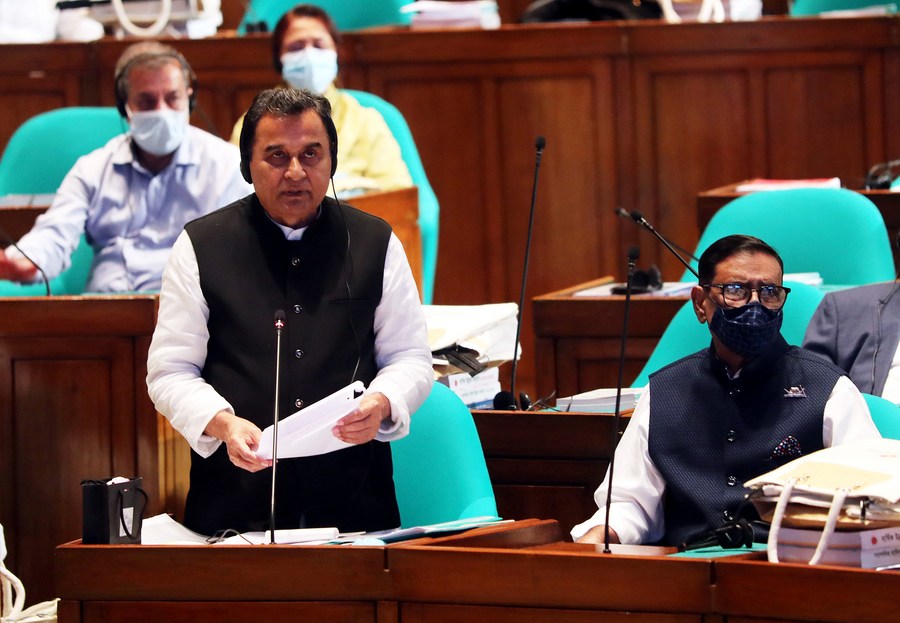
Bangladeshi Finance Minister AHM Mustafa Kamal presents the annual budget in parliament in Dhaka, Bangladesh on June 9, 2022. (Xinhua)
Experts here in recent months have stressed the need for curbing imports, boosting exports and inflow of remittances to minimize trade deficit and provide relief to the country's forex reserves.
Weighed by higher import bills and the taka's weakness driven by the dollar's broad surge in recent months, Bangladesh's foreign exchange reserves last month fell below 40 billion dollars for the first time in two years.
In its bid to boost the shrinking forex reserves, the BB in recent months has taken various measures to discourage imports and woo more remittances from millions of Bangladeshi people living and working abroad.
The Bangladeshi government last Thursday said it is contemplating over taking loans from the International Monetary Fund (IMF) as precautionary measures.
Ahmad Kaikaus, principal secretary to the Bangladeshi prime minister, said the government did not seek a bailout, rather it is thinking of taking pragmatic steps in advance to address the upcoming or uncertain situation of the country due to the adverse impacts of the continuation of the Russia-Ukraine conflict.
However, the concerned authorities such as the Ministry of Finance and the Economic Relations Division are holding discussions with the World Bank and Asian Development Bank for taking precautionary measures if the war continues or the supply chain is disrupted, he continued.
Replying to a query about whether Bangladesh is taking loans like Sri Lanka and Pakistan, he said the country's statistics indicate that Bangladesh does not need loans as it has sufficient foreign reserves.■
